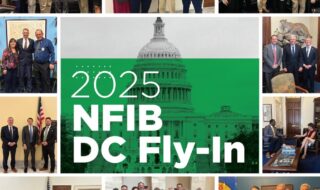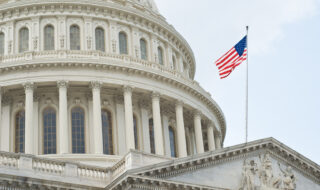Small Business Says No New Taxes to Fund Childcare
Small Business Says No New Taxes to Fund Childcare
March 7, 2024 Last Edit: July 25, 2024
The 2024 NFIB Michigan State Ballot included the question, “Should Michigan levy new taxes to establish a revenue stream to help fund childcare services?” Eighty-eight percent (88%) said no, with seven percent (7%) responding yes, and five percent (5%) undecided.
FOR IMMEDIATE RELEASE LANSING, MI (March 7, 2024) – A new survey by the National Federation of Independent Business (NFIB) of its members in Michigan shows that small business owners do not support tax increases to fund childcare services. On the heels of a presentation regarding the Michigan childcare crisis before a joint committee meeting of the House Labor Committee and the House Appropriations Subcommittee on Labor, Economic Development, & Lifelong Learning, small business wants to make sure legislators know that new taxes to pay for childcare funding is off the table.
“Small business owners are all too aware of the challenges facing the workforce. Availability of adequate and affordable childcare continues to limit the ability of both small business owners to hire and for their employees to thrive,” said NFIB Michigan State Director Amanda Fisher. “However, when asked if taxes should be raised to help fund childcare, they answered with a resounding NO.”
The 2024 NFIB Michigan State Ballot included the question, “Should Michigan levy new taxes to establish a revenue stream to help fund childcare services?” Eighty-eight percent (88%) said no, with seven percent (7%) responding yes, and five percent (5%) undecided.
“Finding qualified workers remains a struggle for small businesses across the country. The most recent NFIB Jobs Report showed that 55% of owners reported hiring or trying to hire in January. Of those hiring or trying to hire, 89% reported few or no qualified applicants for the positions they were trying to fill,” continued Fisher. “Without a doubt, childcare issues are exacerbating an already difficult situation.”
NFIB is eager to work with legislators to find solutions using current resources that will improve the situation. Fisher pointed to the fact that Michigan has some of the most stringent childcare regulations in the country, limiting the capacity of providers and discouraging potential providers. “In addition to industry specific laws and regulations, it is important to remember that childcare providers are small business owners themselves,” said Fisher.
“If policymakers are serious about helping childcare providers, they need to think about how proposed legislation being pushed by the current legislative majorities will affect these business owners,” concluded Fisher. “Increased costs due to changes for unemployment, workers’ compensation, and commercial insurance could have devastating financial implications, while the paid family leave proposal could end up shutting down childcare centers.”
###
For 80 years, NFIB has been advocating on behalf of America’s small and independent business owners, both in Washington, D.C., and in all 50 state capitals. NFIB is a nonprofit, nonpartisan, and member-driven association. Since our founding in 1943, NFIB has been exclusively dedicated to small and independent businesses and remains so today. For more information, please visit nfib.com.
NFIB is a member-driven organization advocating on behalf of small and independent businesses nationwide.
Related Articles













